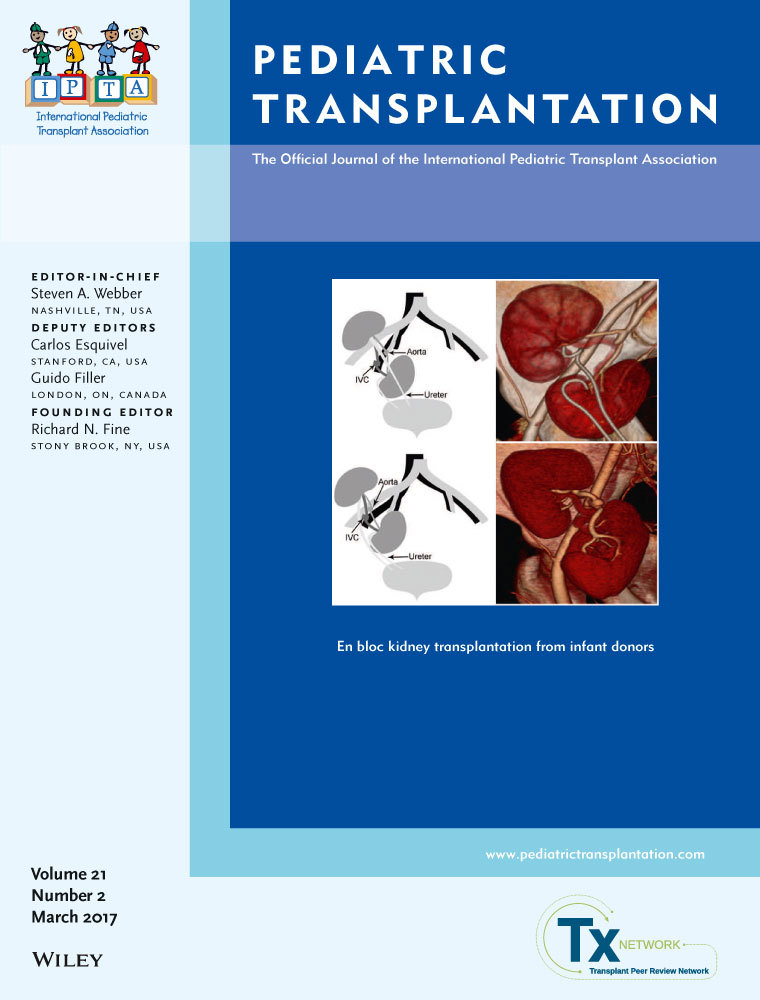BK polyomavirus infection in pediatric heart transplant recipients: a prospective study
Abstract
BKV infection and nephropathy complicate pediatric HTx, but the incidence and time course of the disease are unknown. We assessed the incidence of BKV infection and its association with kidney dysfunction in pediatric HTx recipients. A single center prospective study compared pediatric (<18 years) HTx recipients, with and without BKV infection, who received an allograft between September 2013 and December 2014. Screening of urine for BKV was performed prior to transplant, and at week 1, and at months 3, 6, 9, 12, and 15 months post-transplantation. Serum for BKV DNA was assayed if BK viruria was present. Statistics included Fisher's exact test and Student's t test. Twelve patients were enrolled. Two patients were removed per parent request. Two (20%) had BK viruria and one (10%) had BK viremia. No patients developed BKVN. BK viruria was present within 2 months following transplantation. There were no identifiable risk factors for BKV infection and no statistically significant difference in renal function between the groups; however, there was a trend toward worsening renal function in those with BKV infection. BKV infection can occur early following heart transplantation. Screening for BK viruria should be considered in HTx recipients.




